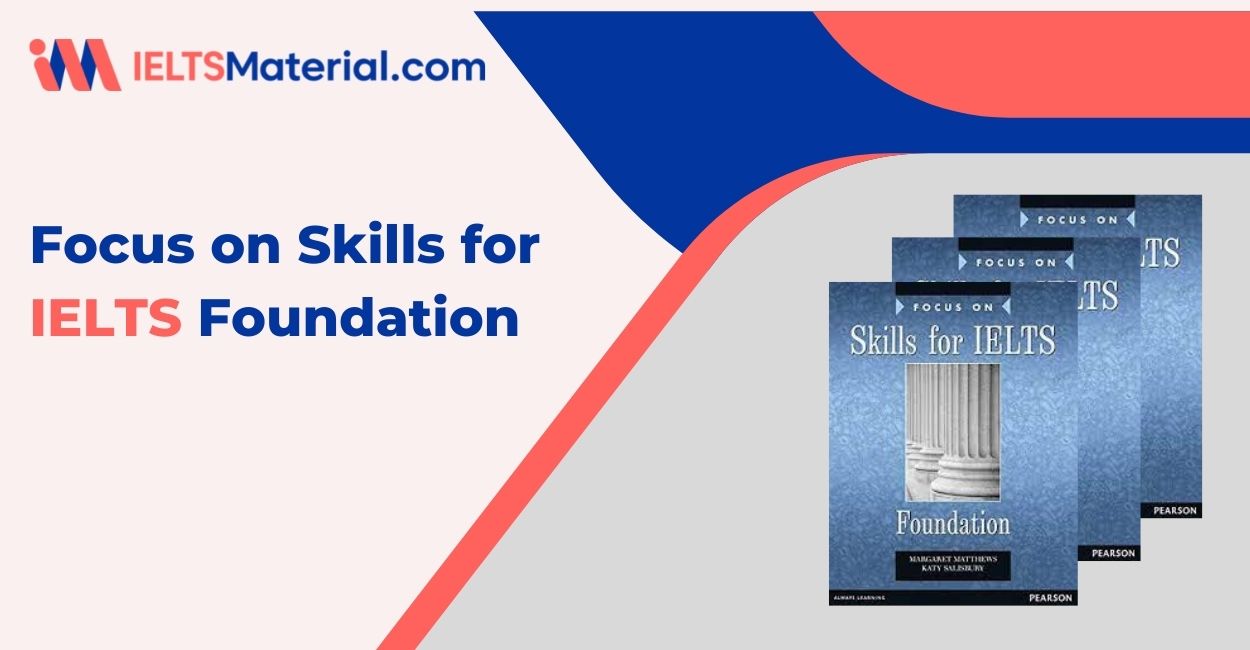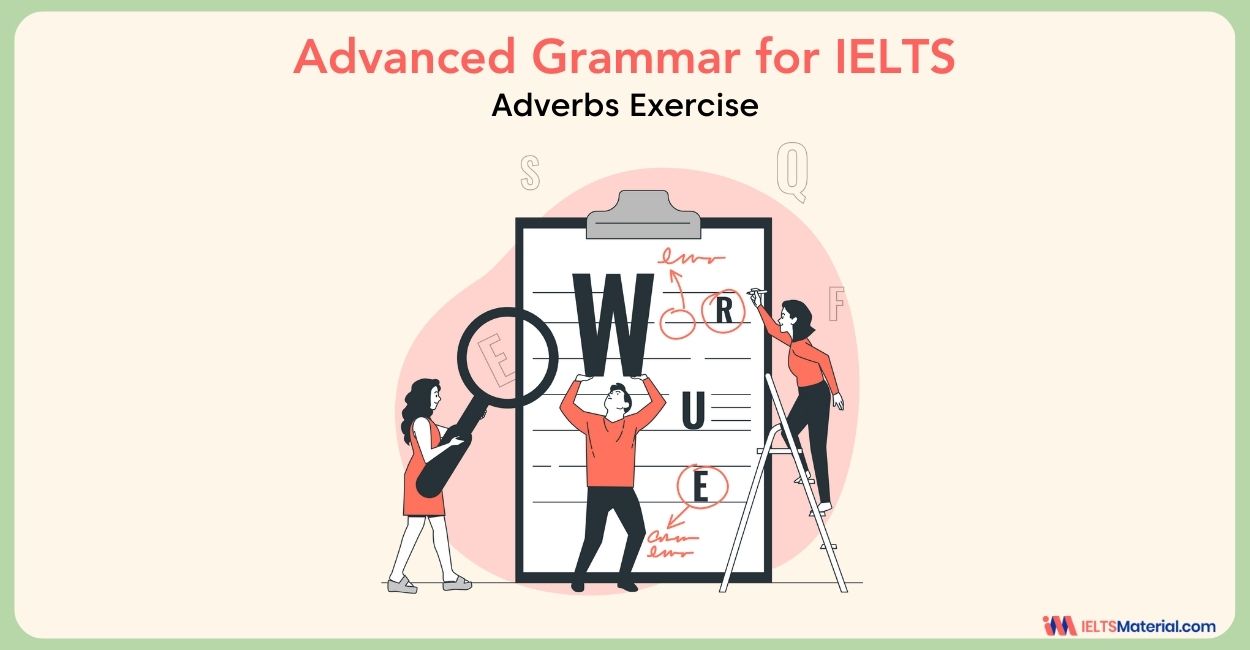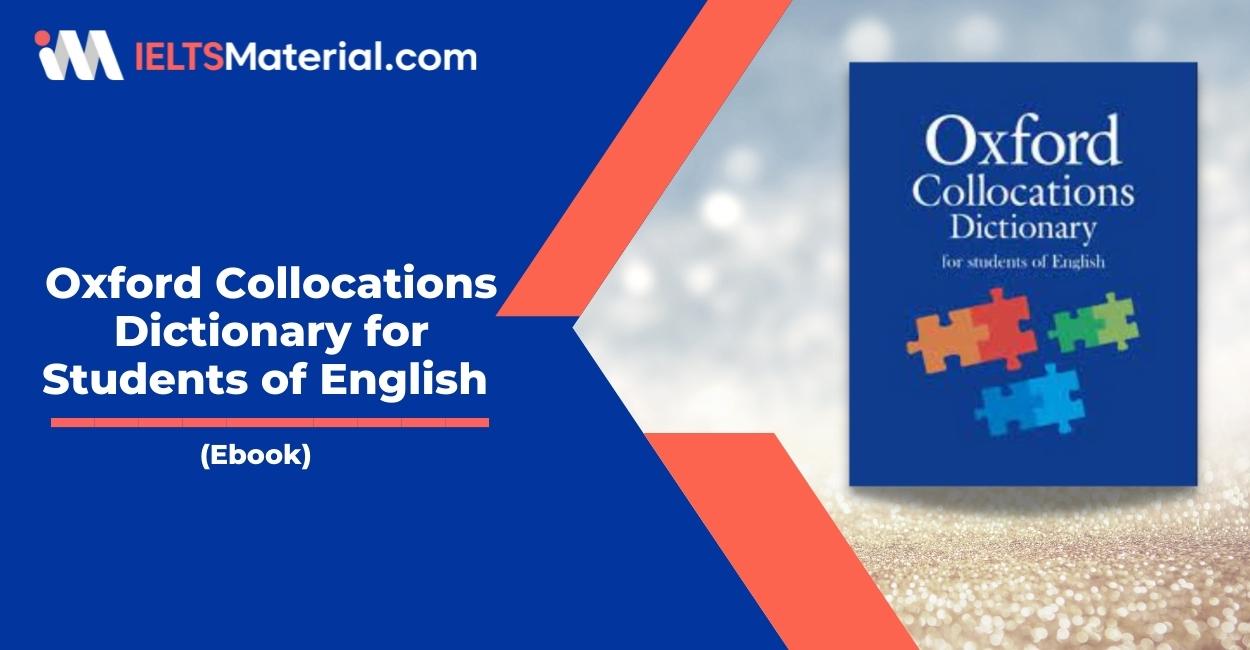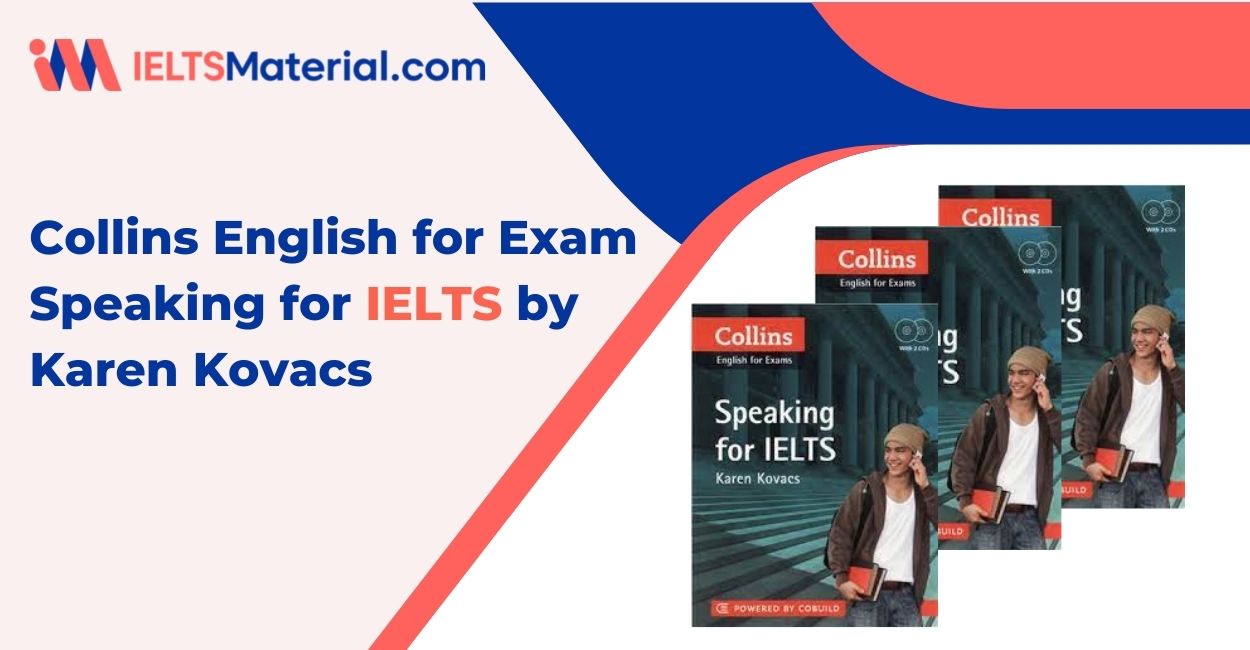Oxford Collocations Dictionary for Students of English (Ebook)
7 min read
Updated On
-
Copy link
Table of Contents
Limited-Time Offer : Access a FREE 10-Day IELTS Study Plan!
IELTS Books is one of the essential IELTS exam companions. From the abundance of book suggestions you will find on our website, go through Oxford Collocations Dictionary for Students of English to get a better understanding of how to deal with the minute details of each section.
Oxford Collocations dictionary that helps students write and speak natural-sounding English
Which words usually go together?
This dictionary shows you the common word combinations (collocations) that are essential for natural-sounding British and American English. Completely revised and extended, the new edition has over 250,000 collocations and over 75,000 examples.
In recent years, teachers and students have become increasingly aware of the importance of collocation in learning English.
However, no matter how convinced learners are in principle of the importance of collocation, it is difficult for them to put these principles into practice without the benefit of an up-to-date, corpus-based dictionary of collocations. Oxford University Press were determined to provide such a dictionary that best meets the needs of students and teachers. We hope that this dictionary will provide you with invaluable assistance in expressing your ideas cogently in idiomatic English.
Get your dream IELTS band in no time with our IELTS experts!
Book Description
Imagine a student writing an essay on the environment. She knows the themes she wishes to cover and the ideas and arguments to get across. She already has a stock of useful vocabulary, especially high-content nouns like environment, pollution, ozone layer. What is missing are the words that can link these high-content vocabulary items together into a coherent whole – a narrative or an argument. Pollution is a problem, but what needs to be done about it?
Looking up the entry for pollution in the Oxford Collocations Dictionary and skimming down to the verbs section offers the choice of avoid/prevent, combat/control/fight/tackle, cut/limit/minimize/reduce or monitor. With the back-up help of a good monolingual learner’s dictionary (such as the Cambridge Advanced Learner’s Dictionary) if need be, the student can choose the most appropriate verb, the one that expresses most exactly what she wants to say.
What is a Collocation?
IELTS Collocation is the way words combine in a language to produce natural-sounding speech and writing. For example, in English you say strong wind but heavy rain. It would not be normal to say *heavy wind or *strong rain. Whilst all four of these words would be recognized by a learner at the pre-intermediate or even elementary level, it takes a greater degree of competence with the language to combine them correctly in productive use. To a native-speaker these combinations are highly predictable; to a learner, they are anything but.
Combinations of words in a language can range from the totally free – see a man/car/book – to the totally fixed and idiomatic – not see the wood for the trees. This idiom is not only fixed in form, it also has nothing whatever to do with wood or trees.
Between these two extremes, there is a whole range of nouns that take the verb see in a way that is neither totally predictable nor totally opaque as to meaning. These run from the fairly ‘weak’ collocation see a film (which elementary students learn as a ‘chunk’, without pausing to reflect that this is not quite the literal meaning of see) through the ‘medium strength’ see a doctor to the ‘stronger’ collocations of see danger/reason/the point. All these combinations, apart from those at the very extremes of the cline, can be called collocation. And it is combinations such as these – particularly in the ‘medium-strength’ area – that are vital to communicative competence in English.
Why are Collocations Important?
Collocations run through the whole of the English language. No piece of natural spoken or written English is totally free of collocation. For the student, choosing the right collocation will make his speech and writing sound much more natural, more native-speaker-like, even when basic intelligibility does not seem to be at issue. A student who talks about strong rain may make himself understood, but possibly not without provoking a smile or a correction, which may or may not matter. He will certainly be marked down for it in an exam.
But, perhaps even more importantly than this, collocationally rich language is also more precise. This is because most single words in the English language – especially the more common words – embrace a whole range of meanings, some quite distinct, and some that shade into each other by degrees. The precise meaning in any context is determined by that context: by the words that surround and combine with the core word by collocation. A student who chooses the best collocation will express himself much more clearly and be able to convey not just a general meaning, but something quite precise.
Compare, for example, the following two sentences:
- This is a good book and contains a lot of interesting details.
- This is a fascinating book and contains a wealth of historical detail.
Both sentences are perfectly ‘correct’ in terms of grammar and vocabulary, but which communicates more (both about the book under discussion and the person discussing it)?
Why Use a Collocations Dictionary?
A normal dictionary, whether monolingual or bilingual, splits up meaning into individual words; it has a lot of power in dissecting the meaning of a text. Its power is more limited when it comes to constructing texts. Good learner’s dictionaries give as much help as they can with usage, with grammar patterns clearly explained, register labels and example sentences showing words in context.
Modern dictionaries are increasingly giving attention to collocation. But they are still hampered by trying to provide a whole range of information about any word besides its collocations. A grammar provides an analysis of the general patterns that exist in a language. But its productive power is limited by the degree to which it generalizes in order to come up with ‘grammatical rules’. A collocational dictionary doesn’t have to generalize to the same extent it covers the entire language (or a large part of it!) on a word-by-word, collocation-by-collocation basis. It manages this by not attempting to account for every possible utterance, only for what is most typical.
By focusing on the specific rather than the general, a collocations dictionary is also able to ‘pre-digest’ a lot of the grammar involved, presenting collocates in their most typical form in context, even if this is not the usual dictionary citation form.
For example in the entry for baby, you will find the collocation be teething, reflecting the fact that this verb is always used in the progressive tenses. Use the collocations dictionary systematically and you become much more aware of the extent to which English makes use of the passive, an aspect of grammar that even advanced students may be reluctant to put to full productive use.
By covering the language systematically from A-Z, a collocations dictionary allows students to build up their own collocational competence on a ‘need-to-know’ basis, starting from the words they already know – or know in part. Occasional, or even regular, collocations exercises in coursebooks cannot fulfil this role, although they do a useful job of raising the profile of collocation as an essential feature of the language, and teach some useful collocations in the process.
How to Use This Dictionary?
This dictionary is intended for productive use, most typically for help with writing. The collocations in each entry are divided according to part of speech; within each part of speech section they are grouped according to meaning or category. (In the example above from pollution, avoid and prevent are roughly synonymous, as are combat, control, fight and tackle, and so on). The groups are arranged in an order that tries to be as intuitive as possible: in this case from the ‘strongest’ form of action (avoid/prevent) to the ‘mildest’ (monitor). Many collocate groups have illustrative examples showing one or more of the collocations in context.
Because this is a type of dictionary that may be totally new to many students it is recommended that users familiarize themselves with how the dictionary works by working through some of the exercises in the photocopiable study section in the centre of the dictionary. The first of these aims to show the overall concept of the dictionary by looking at a single entry (Idea) in some detail. The next few exercises take users systematically through the different sections of the entries for nouns, verbs and adjectives.
Two pages of exercises get students thinking about the common verbs make, do, have, give and take; and the remaining exercises range across the whole dictionary, testing collocations linked to various themes, including politics, jobs and money.
To make your IELTS preparations hassle-free while you prepare to study abroad,
Sign up for our FREE online webinars!
Reviews of Oxford Collocations Dictionary
1. Anne, Translator
“I work as a professional translator and editor and find that I use this book several times a day to find just the right word in English. For example, a German sentence might say that the writer was stuck in “strong traffic” (starker Verkehr), but in English we say “heavy traffic” (not “strong traffic”). This book helps you come up with the right adjective in English when you know that the literal translation of the foreign-language one doesn’t sound right.”
2. Putin, Teacher
“I love this book. It’s very useful and easy to use dictionary that provides valuable help especially when trying to express your thoughts more native-speaker-like. The CD-ROM makes the dictionary portable as you can take it everywhere with your laptop. Also many excersises can significantly improve your English level. I definitely recommend this book to every student of English.
3. Domince, Student
“I love this dictionary because it is word specific every dictionary does not necessarily carry the specific meaning of a word weather in the noun, verb, or adjective form. In my assessment, I find this one to be off the chart.”
Buy Oxford Collocations Dictionary from Amazon
Also check :
Start Preparing for IELTS: Get Your 10-Day Study Plan Today!
Check out other General eBooks

Janice Thompson
Nehasri Ravishenbagam

Nehasri Ravishenbagam
Recent Articles

Courtney Miller

Zuhana
Janice Thompson





Post your Comments
3 Comments